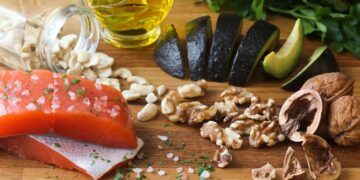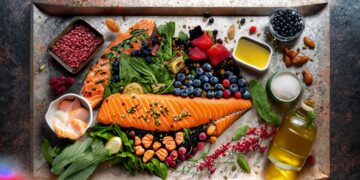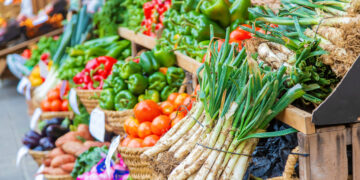Though the weather outside is frightful, your plate doesn’t have to be as bland as the fallen snow. Turn to in-season vegetables to keep your meals fresh and your taste buds happy. The onset of winter brings with it an array of fragrant, colourful, nutrient-dense vegetables that can inject a valuable dose of high-quality, low-glycemic carbohydrates into your diet.
Whether you are an athlete, a fitness competitor, carb-conscious, or you are simply looking to improve your overall health, local winter vegetables are macro superstars. Substituting starchy carbohydrates such as white potatoes and corn for lower-carbohydrate, vitamin-rich winter vegetables will get you closer to an amped-up immune system and a rocking physique. Let’s explore four above-average choices that are as delicious as they are amazing for your body.
[SPINACH]
Spinach is a lightly flavoured leafy vegetable that is considered a nutritional wunderkind because of its high iron content. It’s also an excellent source of vitamins K, A, C, folic acid, magnesium, manganese, copper, and niacin. Adding spinach into any recipe will help fight inflammation, neutralize blood PH levels, and reduce digestive stress. Plus, on a cellular level, spinach helps transport oxygen around the body, ensuring optimal mitochondrial health. (Mitochondria are the power centers of your cells.) And, like many of the vegetables on this list, eating spinach can help you feel full and satisfied, whether you are prepping for a fitness competition or simply trying to curb those pesky sugar cravings.
NUTRITIONAL PROFILE (PER 100 GRAMS)
- Calories 24
- Carbs 4 g
- Fiber 2 g
- Protein 3 g
- Fat <1 g
 [BUTTERNUT SQUASH]
[BUTTERNUT SQUASH]
Butternut squash belongs to the same family as pumpkins, gourds, and other types of squash. It has a sweet, nutty flavour similar to that of pumpkin; however, it has a much more dense, creamy texture. Butternut squash is low in carbs – around 12 per 100 grams – and contains vitamin A, potassium, and sodium. (Though sodium has received a bad rap, it helps with many bodily functions, such as helping you maintain proper levels of hydration, and it plays a role in nerve communication.) And as it’s a source of fibre, eating this squash can help you manage your weight by filling you up and triggering satiety. But the benefits don’t stop there. Butternut squash is a source of calcium and magnesium, two minerals that control the communication between your nerves and your muscles. By incorporating butternut squash into your diet, you are providing your body with an insurance plan against calcium and magnesium deficiencies that may lead to muscle cramps. (If you have ever experienced this uncomfortable occurrence, you know exactly how painful they can be.) Another fringe benefit of increasing your magnesium intake is its reputation of being Mother Nature’s natural sedative or relaxant. Who doesn’t want to feel relaxed?
NUTRITIONAL PROFILE (PER 100 GRAMS)
- Calories 45
- Carbs 12 g
- Fiber 2 g
- Protein 1 g
- Fat <1 g
 [SWEET POTATO]
[SWEET POTATO]
Sweet potatoes are one of nature’s most exceptional gifts, offering a wide variety of nutrients in every delicious bite. The vitamin B6 and potassium found in these sweet spuds provide many heart-health benefits: B6 is adept at breaking down artery-hardening substances, and potassium plays an important role in regulating your heartbeat. Eating just one large sweet potato delivers 100 percent of your daily recommended requirement of vitamin A, which helps you maintain a glowing complexion and healthy eyes. Need we say more?
NUTRITIONAL PROFILE (PER 100 GRAMS)
- Calories 45
- Carbs 12 g
- Fiber 2 g
- Protein 1 g
- Fat <1 g
 [TURNIP]
[TURNIP]
When the weather begins to turn cold, I’m reminded of my mother’s good-old French-Canadian stews that were always filled to the brim with tender hunks of turnip. This root vegetable has a very low calorie and carbohydrate profile (just check out the macro list below) yet still delivers tons of nutrients like vitamin C (half of a days’ value in just one bulb) and a sulforaphane compound that can fight cancer growth. Feeling adventurous? Mowing down on their leafy tops will provide even greater health benefits with major doses of antioxidants like vitamin A and lutein.
NUTRITIONAL PROFILE (PER 100 GRAMS)
- Calories 28
- Carbs 6 g
- Fiber 2 g
- Protein <1 g
- Fat <1 g
Follow us on Facebook.
Follow us on Instagram.
Subscribe to our Youtube channel.
















